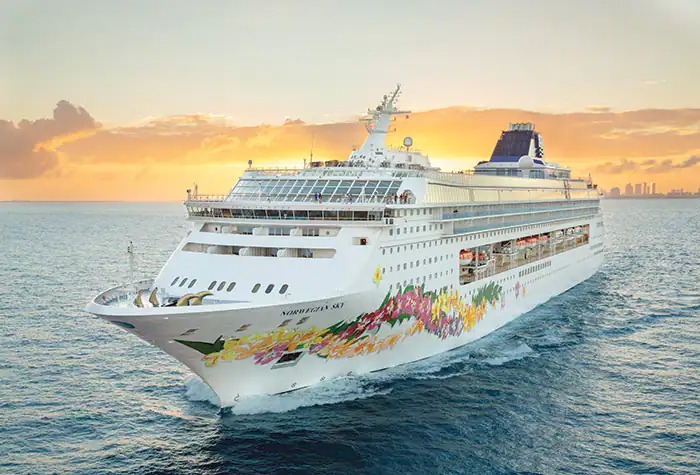Working with travel suppliers is at the heart of every successful travel agent’s business. The most effective travel professionals understand the differences between supplier types, build strong relationships, take advantage of training opportunities, negotiate favorable terms, and create efficient booking processes. Our guide is your roadmap to maximizing supplier partnerships-covering everything from selecting the right partners to cultivating long-term, mutually beneficial relationships that boost your business and delight your clients!
Why Supplier Relationships Matter
Travel agents are the architects of unforgettable journeys. But behind every seamless itinerary is a network of suppliers-airlines, hotels, cruise lines, tour operators, and more-who provide the essential components that make travel possible. Your ability to work effectively with these suppliers determines whether your clients return home raving about their trip or disappointed by missed connections and lackluster service.
Understanding how to navigate the supplier landscape is crucial. Whether you’re a new travel agent or a seasoned pro looking to refine your approach, this guide will help you master the art and science of supplier relationships. Let’s dive into the world of travel suppliers and discover how to turn these partnerships into a competitive advantage.
Types of Travel Suppliers
The travel industry is a vast ecosystem, and suppliers come in many forms. Here’s a breakdown of the main categories you’ll encounter:
Airlines
Airlines are the backbone of international and domestic travel. Major carriers like Delta, United, American, and Southwest offer different routes, fare classes, loyalty programs, and commission structures. Understanding these differences helps you match clients with the best flights for their needs.
Hotels and Accommodations
From global chains (Hilton, Marriott, Hyatt) to boutique properties and vacation rentals, accommodation suppliers offer a wide range of experiences. Each has its own booking systems, commission rates, and guest perks. Building relationships with preferred hotel partners can unlock upgrades and special amenities for your clients.
Cruise Lines
Cruise suppliers like Royal Caribbean, Norwegian, Princess, and Celebrity offer floating resorts with unique itineraries, onboard experiences, and target demographics. Knowing the nuances of each line helps you recommend the perfect cruise for every traveler.
Car Rental Companies
Car rental suppliers such as Hertz, Enterprise, Alamo, and Budget provide mobility solutions for travelers. Each company has its own policies, loyalty programs, and fleet options. Understanding these details ensures smooth ground transportation for your clients.
Tour Operators
Tour operators package multiple travel elements (hotels, transportation, activities) into seamless itineraries. Some, like Trafalgar or Globus, focus on escorted tours, while others offer independent travel packages. Tour operators handle logistics, making them valuable partners for complex trips.
Wholesalers
Wholesalers act as middlemen, sourcing products from hotels, airlines, and other suppliers, then selling them to travel agents in bulk. They don’t typically sell directly to consumers, but they can offer competitive rates and exclusive inventory.
Online Travel Agencies (OTAs)
OTAs like Expedia, Booking.com, and Priceline aggregate travel products and sell them directly to consumers online. Some offer agent portals with commission opportunities, but often with less personalized support than traditional suppliers.
Bedbanks
Bedbanks specialize in distributing hotel inventory to travel agents and other intermediaries. They often have access to exclusive rates and wide-ranging options, making them useful for agents seeking flexibility and value.
Destination Management Companies (DMCs)
DMCs are local experts in specific destinations, offering ground services, tours, and unique experiences. They’re invaluable for group travel, special events, and off-the-beaten-path adventures.
Travel Insurance Providers
Companies like Allianz and Travel Guard offer protection against trip cancellations, medical emergencies, and other travel risks. Understanding policy details and exclusions is essential for advising clients.
The Difference Between Supplier Types
B2B vs. B2C
-
B2B Suppliers: Work directly with travel agents and agencies, offering wholesale rates, training, and support. Examples include wholesalers, tour operators, and some hotel chains.
-
B2C Suppliers: Sell directly to consumers, but may also offer agent programs. OTAs and some airlines fit this model.
Wholesalers vs. Tour Operators
-
Wholesalers: Aggregate inventory from various suppliers but don’t create packages themselves.
-
Tour Operators: Design and operate full travel packages, handling all logistics and often offering unique experiences.
OTAs vs. Traditional Agencies
-
OTAs: Focus on self-service, online booking, and broad inventory.
-
Traditional Agencies: Offer personalized service, expert advice, and curated experiences.
Specialized Agencies
Some agencies focus on niche markets (luxury, adventure, group, business travel), requiring relationships with specialized suppliers who cater to those segments.
Building Strong Supplier Relationships
Why Supplier Relationships Matter
Strong supplier relationships are key to delivering value, securing perks for your clients, and growing your business. Suppliers are more likely to offer upgrades, exclusive deals, and quick problem resolution to agents they know and trust.
Communication is Key
Open, consistent communication builds trust. Regular check-ins, honest feedback, and proactive sharing of client needs help suppliers serve you better. Use email, phone calls, webinars, and in-person meetings to stay connected.
Choosing the Right Suppliers
When evaluating suppliers, consider:
-
Reputation and reliability
-
Commission structures
-
Support availability (especially during client emergencies)
-
Training and educational resources
-
Technology and booking systems
-
Flexibility and willingness to work with agents
Don’t be afraid to test new suppliers, but prioritize those who demonstrate commitment to the agent community.
Preferred Supplier Programs
Many agencies join consortia or host agencies that negotiate preferred supplier agreements. These relationships offer higher commissions, marketing support, and exclusive offers. Building volume with preferred suppliers strengthens your negotiating power.
Supplier Training
Why Training Matters
Supplier training programs are a goldmine for travel agents. They provide in-depth knowledge, sales tips, and sometimes even certifications that boost your credibility.
Types of Training
-
Webinars and Online Courses: Most major suppliers offer these regularly.
-
In-person Seminars and FAM Trips: Firsthand experience is invaluable.
-
Certification Programs: Many suppliers have specialist certifications (e.g., Disney, Sandals, cruise lines).
Maximizing Training
-
Focus on suppliers that align with your niche or target market.
-
Set aside regular time for ongoing education.
-
Use your expertise in marketing materials and client consultations.
-
Display certifications on your website and social media.
Negotiating with Suppliers
Preparing for Negotiation
Know your agency’s booking volume, client demographics, and travel patterns. Research the supplier’s competitors and market conditions.
Building Leverage
-
Demonstrate your value (booking history, client base, marketing reach).
-
Join consortia or host agencies to access collective bargaining power.
-
Focus on building long-term partnerships, not just one-off deals.
What to Negotiate
-
Commission rates and overrides
-
Marketing support and co-op funds
-
Payment terms and timelines
-
Cancellation and change policies
-
Client perks (upgrades, amenities, exclusive offers)
Handling Challenges
If a supplier won’t budge on rates, ask for value-adds like free upgrades, flexible terms, or marketing support. Always aim for win-win outcomes.
Making Purchases Through Suppliers
Onboarding New Suppliers
-
Vet suppliers for reliability, financial stability, and agent support.
-
Complete necessary paperwork (contracts, tax forms, banking info).
-
Integrate supplier systems with your booking workflow.
Booking Processes
-
Learn each supplier’s preferred booking method (online portal, GDS, phone, email).
-
Understand payment requirements (immediate, deposit, credit terms).
-
Track bookings meticulously for commission reconciliation.
Managing Payments and Commissions
-
Keep detailed records of sales and commission structures.
-
Reconcile payments regularly and follow up on discrepancies.
-
Use accounting software or CRM systems to streamline tracking.
Overcoming Common Challenges
Supplier Selection
Look for red flags like lack of support, poor communication, or negative reviews from other agents. Test new suppliers with small bookings before committing major business.
Managing Client Expectations
Be transparent about what each supplier offers. Set realistic expectations and communicate any changes promptly.
Problem Resolution
Have clear escalation contacts at each supplier. Document issues and resolutions for future reference. Advocate for your clients but remain professional and solution-focused.
Top 15 FAQs About Working with Travel Suppliers
-
What’s the difference between a tour operator and a wholesaler?
Tour operators create and operate travel packages; wholesalers aggregate inventory from multiple suppliers and sell to agents. -
How do I find the best suppliers for my agency?
Research reputation, test support, check agent reviews, and experience products firsthand when possible. -
What commission rates can I expect?
Rates vary by supplier and product-hotels and cruises often pay 10–20%, while airlines may pay less or offer net fares. -
Why are preferred supplier relationships important?
They offer higher commissions, better support, and exclusive perks for your clients. -
What training should new agents focus on?
Start with core suppliers in your niche and complete their online or in-person training programs. -
How can I negotiate better rates?
Build booking volume, join a consortium, and demonstrate your value to suppliers. -
What should I look for in supplier contracts?
Focus on commissions, payment terms, cancellation policies, and support provisions. -
How do I stay updated on supplier changes?
Subscribe to newsletters, join agent communities, and attend webinars. -
How do I handle an underperforming supplier?
Document issues, communicate concerns, escalate if needed, and switch suppliers if problems persist. -
How can small agencies get supplier attention?
Specialize in a niche, join consortia, and build personal relationships with reps. -
What if a supplier goes out of business?
Notify clients, explore refund options, and assist with claims or alternative arrangements. -
How do I resolve commission payment issues?
Keep detailed records, reconcile regularly, and escalate unresolved issues. -
What are signs a supplier is in financial trouble?
Delayed payments, reduced service, sudden policy changes, and industry rumors. -
Is it better to work with a few suppliers or many?
Most agents benefit from focusing on a core group of preferred suppliers. -
How do supplier relationships differ for business vs. leisure travel?
Business travel often involves formal contracts and negotiated rates; leisure is more flexible but requires deep product knowledge.
Turning Supplier Relationships into a Competitive Edge
Mastering supplier relationships is essential for every travel agent. These partnerships are the foundation of your business-enabling you to deliver exceptional value, solve problems quickly, and create unforgettable experiences for your clients!
Invest time in building and maintaining strong supplier relationships. Take advantage of training, communicate openly, and always advocate for your clients. As the travel industry evolves, your ability to navigate the supplier landscape will set you apart and ensure your long-term success!
Whether you’re booking a family’s dream vacation, a corporate retreat, or a once-in-a-lifetime adventure, your supplier partnerships are the secret ingredient that makes it all possible. Embrace the journey, keep learning, and watch your business-and your clients’ satisfaction-soar! Feel free to ask us any questions you might have about sponsors, suppliers, and general travel agent topics!




















